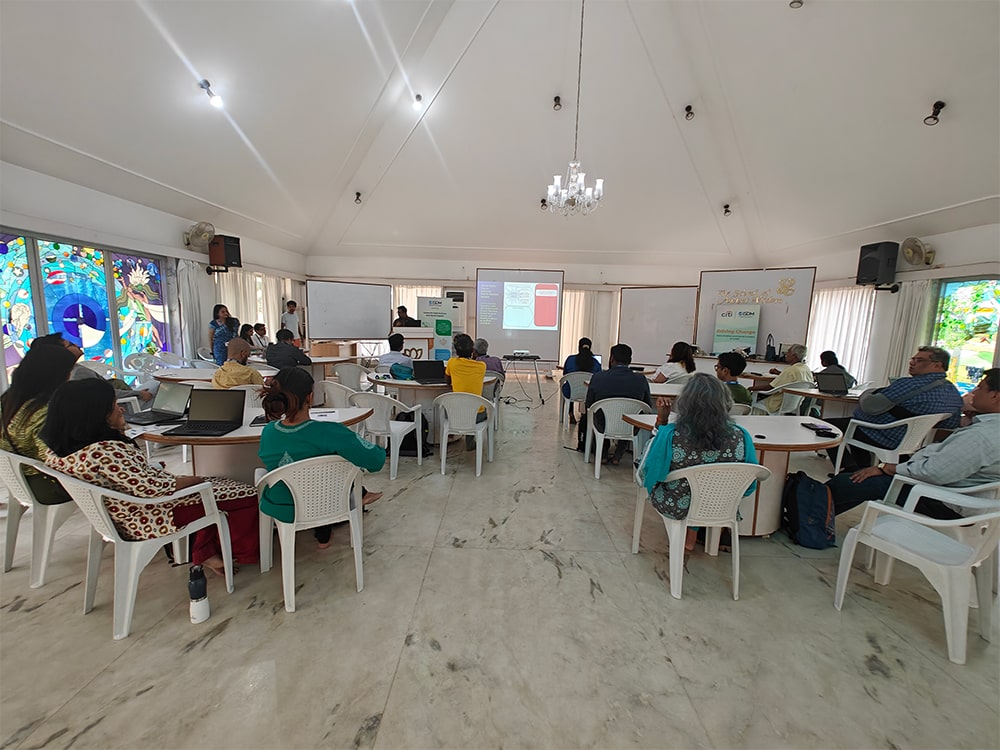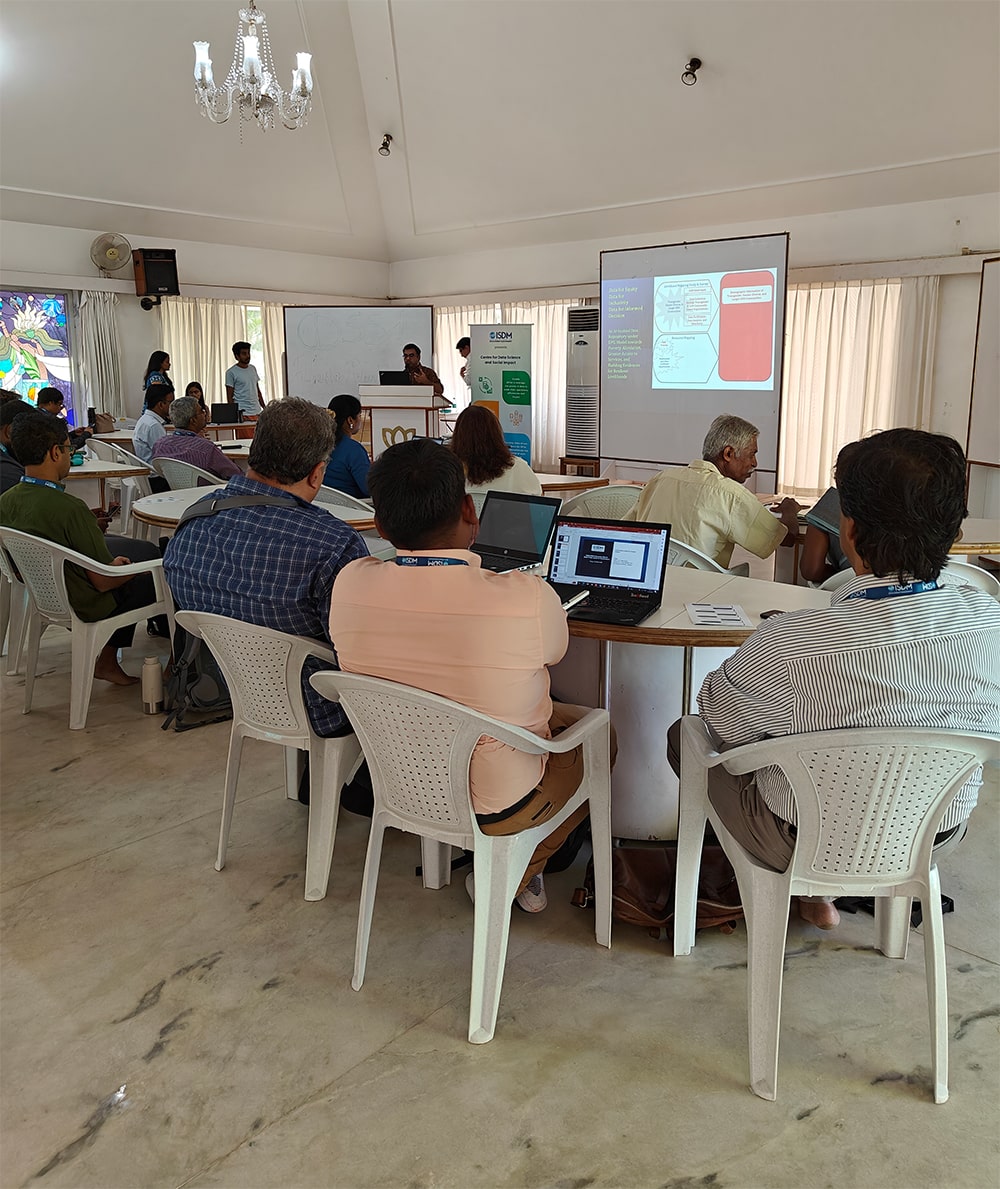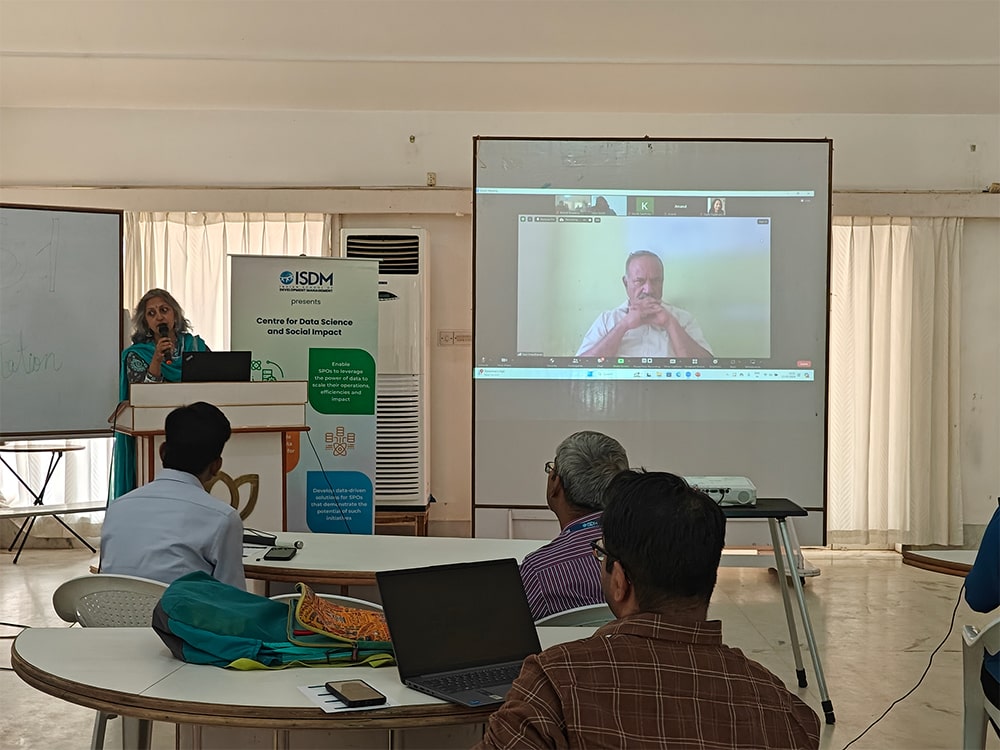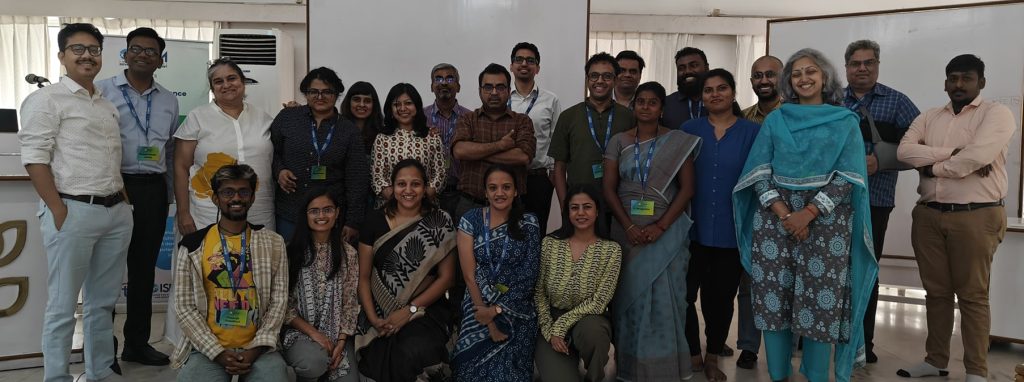A Fellowship for social good
The first cohort of the ISDM CDSSI Fellowship presented their projects at an orientation held in Bengaluru
CDSSI welcomed its first cohort of six fellow teams on March 15, 2024, at an orientation held at The School of Ancient Wisdom in Bengaluru. This event marked the inauguration of the ISDM CDSSI Fellowship 2024-25: Digital Open Solutions (DOS) for Social Impact. The closed-door, hybrid event was attended by over 35 individuals, including Fellow teams, mentors, and key stakeholders from ISDM
The Fellowship was conceived as a way to promote the development of open-access technologies and their use in the social sector. It aims to work towards removing the roadblocks in the use of data and technology use in the development sector. In the words of Ravi Sreedharan, President and co-founder of ISDM, “We are underestimating the leverage that social sector organisations can get if we are able to make systemic changes. The work that all of us are doing in this room is all going to build that ecosystem.”
Co-creating Impactful Solutions
During this 12-month Fellowship, the Fellow teams will undertake projects aimed at creating DOS designed to cater to the specific requirements of SPOs. These DOS will be widely accessible to the general public and to individuals, organisations, and other stakeholders within the larger development sector. During the orientation event, the Fellowship teams shared the details of their projects.

- Ashim Tuli and his team will be working on “Augmentation Models for Informal Workers”, where they will develop an AI model to improve workers’ income in the informal sector. This application will model the complex interdependencies between socioeconomic factors and income-improvement interventions, along with their effects on real income.
- The next project is grounded in addressing the historical exclusion and societal prejudices faced by India’s transgender, gender-diverse, and larger Gender and Sexual Minority (GSM) communities. PROJECT TRANSParent, led by Avinaba Dutta, aims to create an open, accessible, transparent, and AI-enabled data repository or dataset for transgender and GSM demographic data.
- With extensive experience in documenting and disseminating traditional agricultural knowledge, grassroots technology, and farmers’ innovations, P. Vivekanandan will be driving “SEVA: Sustainable Livestock Production App”. The team will be working on an AI and NLP-based chatbot application that provides digital access to livestock disease treatment using traditional herbal medicine through a voice-assisted interface.

- Yashwin Iddya and his team want various stakeholders such as government, Civil Society Organisations (CSOs), and Self Help Groups (SHGs) to see how vulnerable the communities they work with are, test interventions, simulate shocks, and plan for resilience, through their project “E-QLT: A Social Security Simulation Platform”.
- To revolutionise the paediatric healthcare landscape, particularly the comprehensive growth monitoring and nutritional management of children, Nilashis Roy and his team will create a mobile application for the detection of malnutrition called “MAAP: Malnutrition Assessment and Action Plan”.
- Karthik Sawhney heads the final entry in the fellowship projects, a platform titled “NClude”. It is an LLM-powered information access and recommendations chatbot for the blind and low-vision community.
Addressing Social Challenges Through Data Science
The objective of the CDSSI Fellowship for data science practitioners in the social sector is to encourage the application of data science to address social challenges, offer actionable insights, optimise interventions, and enhance decision-making. Recognising the importance of addressing these challenges and acknowledging the dearth of data science talent in the social sector, the Fellowship acts as a platform for data science professionals to contribute to this sector.
CDSSI plans to keep working towards making open-access data and technology solutions available to organisations in the development sector by conducting a yearly Fellowship.





